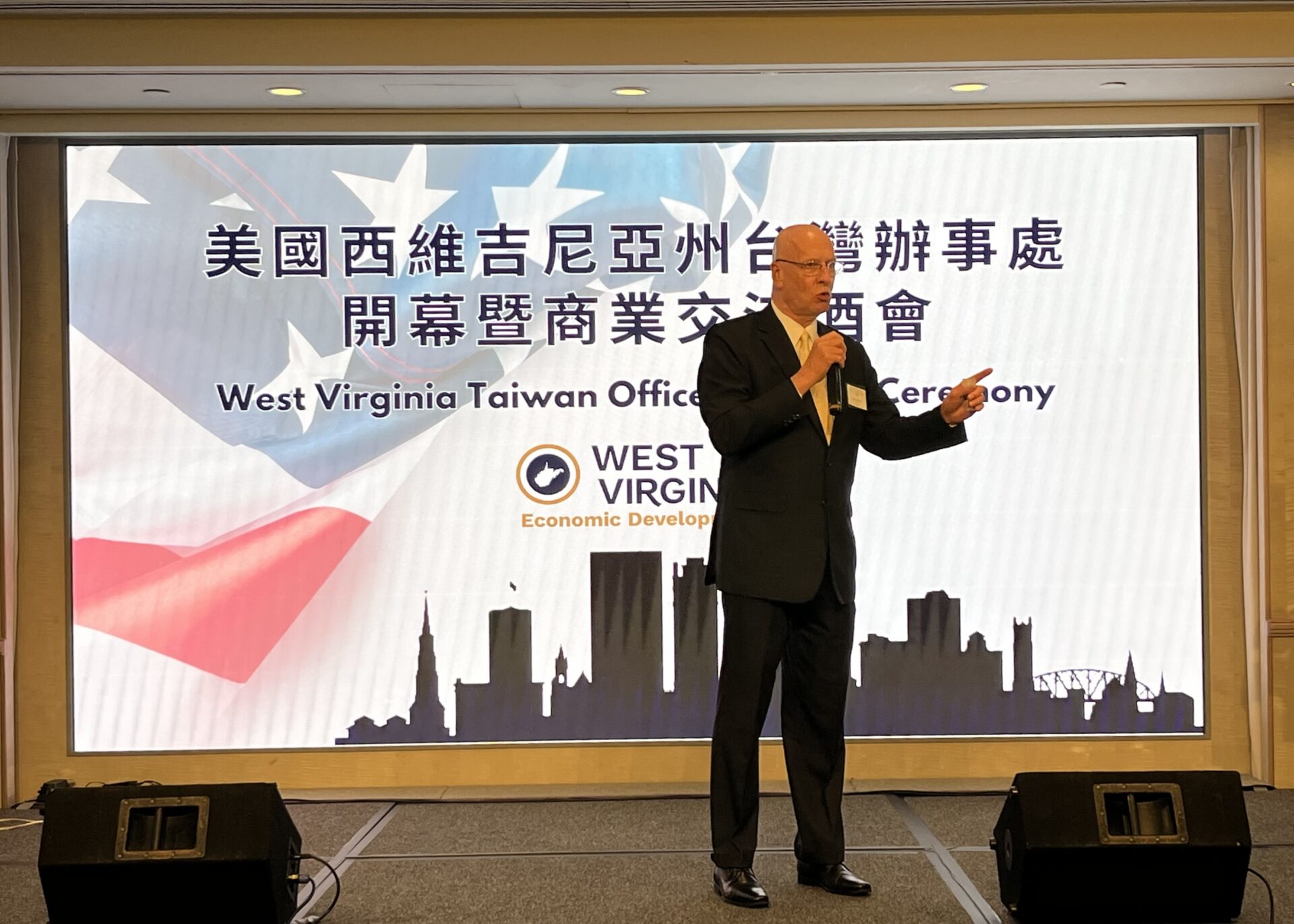A trade delegation of state leaders is in Taiwan for a ribbon cutting of a new West Virginia Taiwan Office at the Taipei World Trade Center.
According to a press release from the state Senate Communications Office, the trade office will serve as a hub for promoting West Virginia as a prime location for Taiwanese investment and assisting West Virginia businesses with exporting their products and services to Taiwan. As more companies in Taiwan seek to expand their global footprint, the West Virginia Taiwan Office will make the state more competitive in its mission to attract those new investment opportunities.
During Thursday’s ribbon cutting ceremony, Senate President Craig Blair, R-Berkeley, pledged to build a long-term relationship with Taiwan and that this new office would be a strong platform to foster that growth.
“When I first visited Taiwan in 2018, I knew that it was a special place, and I began working on ways we could set up a West Virginia trade office here,” Blair said. “The people of Taiwan are exactly like the great people of West Virginia. They’re both family oriented, industrious, innovative, and extremely warm, caring and welcoming. In fact, the song ‘Take Me Home, Country Roads’ is as popular in Taiwan as it is in West Virginia. Everyone knows the words regardless of the language barrier.”
APG Polytech, owned by Taipei based, Far Eastern New Century Corporation, is already in Mason County. The company produces polymer resin for manufacturing companies.
Blair said this week’s trade mission has opened even more doors and led to more discussions for future investment.
House Speaker Roger Hanshaw, R-Clay, agreed, and said he is eager to see West Virginia’s relationship with Taiwan continue to strengthen.
“We’ve all learned that even though we can do just about anything virtually, there’s still something special about a handshake and a face-to-face conversation,” Hanshaw said. “Our relationship with our friends here in Taiwan is special, and I’m excited West Virginia will be on the ground here to actively recruit companies that would be a great fit for the economy we’ve been building here in the Mountain State. I appreciate the work our Department of Economic Development has put in here already and I’m eager to see how that continues even after we leave here this week.”
Also attending on behalf of the West Virginia Legislature were Senate Majority Whip Ryan Weld, R-Brooke, Senate Minority Whip Robert Plymale, D-Wayne; and Delegates Wayne Clark, R-Jefferson; Paul Espinosa, R-Jefferson; Daniel Linville, R-Cabell; and Kayla Young, D-Kanawha.
The Chinese Communist Party has ramped up provocative moves against the island following high profile meetings with former U.S. House Speaker Nancy Pelosi and current U.S. House Speaker Kevin McCarthy.
Despite bilateral relations with Taiwan, the U.S. does not have a formal diplomatic relationship with the island, which China considers is part of its sovereign territory.
While Taiwan still dominates the world’s chip industry, producing over 60% of the world’s semiconductors, the country has faced recent resistance on the part of some U.S. investors over the lack of a formal tax treaty between the two countries.
Taiwan’s gross domestic product (GDP) shrank by 3 percent during the first quarter of 2023 and the country’s economy has slipped into recession.
Slowing global demand for semiconductors is blamed for the country’s poor economic performance.
